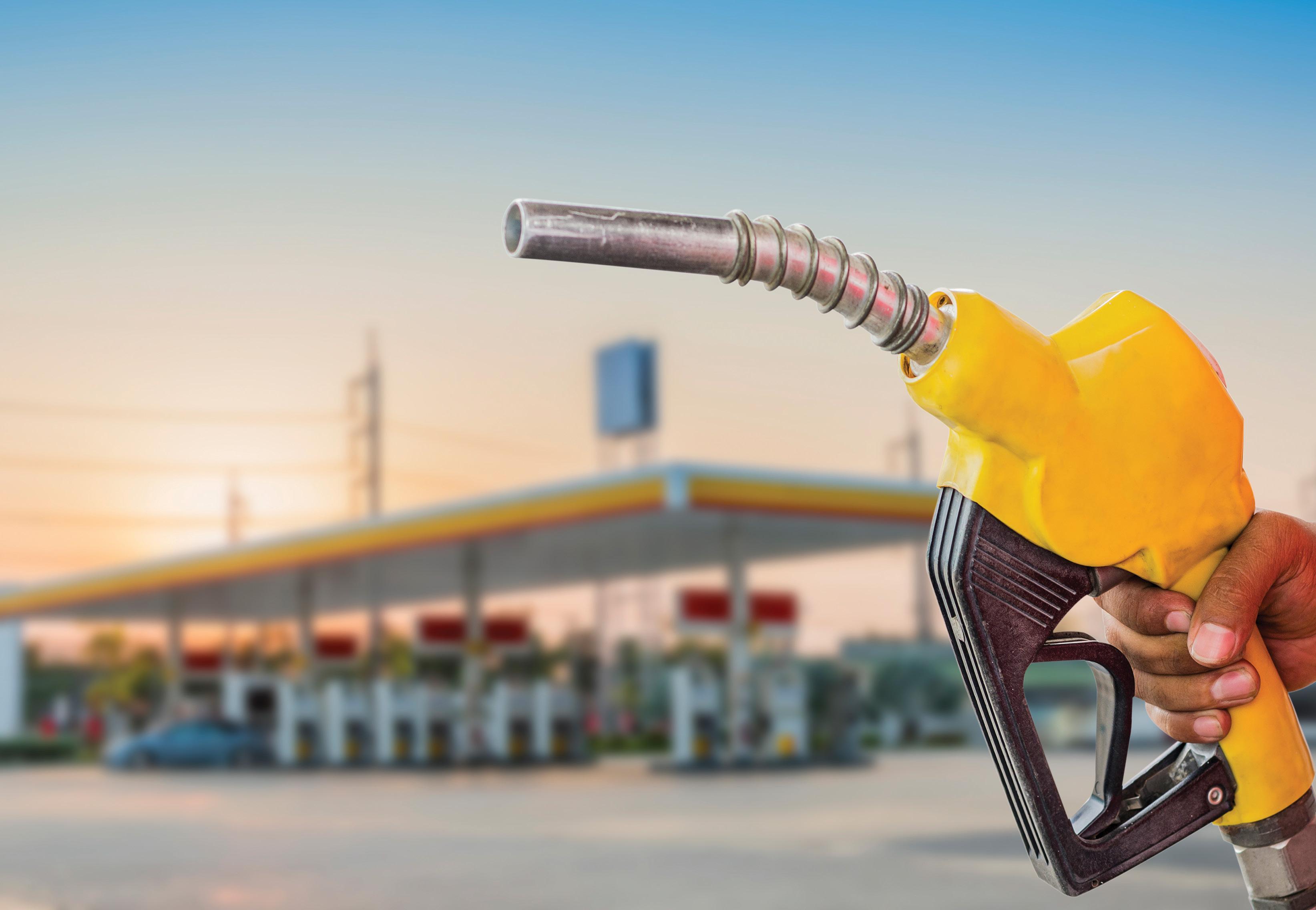
4 minute read
Burden of Truth
Inadequate diesel dispenser filtration regulations put onus on stations to protect vehicle equipment.
BY ROBERT INGHAM
Diesel marketers take notice: The Fuels Institute’s Diesel Fuel Quality Council (DFQC) has suggested that state dispenser filtration standards may not be stringent enough to sufficiently protect modern diesel engines.
Most people know that filters, including fuel dispenser filters, are rated to capture a certain size and quantity of contaminants. This capability is represented by the filter’s micron rating. A micron is equal to one-millionth of a meter or 1/25,000th of an inch. (To put micron size in perspective: Human hair is usually between 40 and 100 microns, a red blood cell measures 8 microns and bacteria is 2 microns.) Unfortunately, there is growing evidence that microscopic particulate in high-pressure common-rail (HPCR) fuel systems can lead to big problems with diesel vehicles, including clogged fuel filters, fuel pump failures and injector failures.
In fact, the DFQC report “Diesel Storage Tanks: Industry Practices to Minimize Degradation and Improve Fuel Quality” suggests that a 30-micron dispenser filter may not provide HPCR engines adequate protection from contaminated diesel that can cause such problems and that 10-micron dispenser filters may be necessary to capture damaging particulate.
DISPENSER FILTRATION STANDARDS
When it comes to fuel dispensers, there are numerous entities influencing filtration requirements. As such, it can be challenging for station operators to know if they are adequately filtering their fuel. That said, fuel site operators are generally obligated to meet the expectations of these three parties: • The filtration requirements established by their state • The warranty conditions issued by the dispenser manufacturer, and/ or the requirements for meeting the manufacturer’s National Type
Evaluation Program (NTEP) certificate of conformance • Customers’ expectations for high-quality fuel
There are several recognized technical standards that prompt the need for adequate filtration practices. For instance, ASTM International standards, which are frequently adopted by states by incorporation or by reference, require finished fuel to be free of adulterants and sediments. In terms
of regulating operational standards for fuel dispensers, two main documents are frequently referenced as authorities on the subject: NIST Handbook 130 and NIST Handbook 44.
The requirements in NIST Handbook 130, which publishes regulations about metrology and fuel quality and includes standards for dispenser filtration, are fairly clear-cut. The 2020 NIST Handbook 130, which is the most current version available at the time of this writing, states that “all biodiesel, biodiesel blends, diesel, and kerosene dispensers shall have a 30 micron or smaller nominal poresized filter.” The handbook requires all gasoline, gasoline-alcohol blends, gasoline-ether blends, ethanol flex fuel, and M85 methanol dispensers to have a 10-micron or smaller nominal pore-sized filter. About half of the states in the U.S. adopt some version of the fuel dispenser filtration standards established by The National Conference on Weights and Measures in NIST Handbook 130.
NIST Handbook 44 is not as direct in its dispenser filtration specification. This document covers technical requirements for weighing and measuring devices, including standards for dispenser totalizers, displaying prices and transactions, and accuracy classes and tolerances for flow rates. While dispenser filtration standards are not discretely addressed in NIST Handbook 44, it does require that “a device shall be installed in accordance with the manufacturer’s instructions, including any instructions marked on the device.”
Fuel site operators will also need to meet requirements issued by the manufacturer. This usually comes in the form of warranty verbiage that stipulates the dispenser must be maintained in accordance with the manufacturer’s service instructions, which may specify the micron rating that the dispenser’s filters need to meet. For dispenser manufacturers issued a certificate of conformance by a National Type Evaluation Program (NTEP) lab for a dispenser that was approved with a specific filter, the filter needs to be included and maintained to meet the obligations of the certificate.
Agency-issued penalties for failing to meet the minimum standards for dispensers range from “red-tagging” a dispenser to civil penalties. However, risking long-term customer loyalty and brand trust may ultimately be the most damaging consequence.
RECOMMENDED BEST PRACTICES
Although fuel may become contaminated at many points in the supply chain, the fuel dispenser represents the last chance to prevent the contaminants from damaging vehicle equipment. The DFQC report states that high-volume fuel sites such as travel centers reported few complaints about fuel quality during research for the report, suggesting that fuel sites that do not quickly turn over their diesel supply are more susceptible to water contamination, microbial growth and sediment.
While the DFQC report recommends that fuel site operators use 10-micron filters to capture smaller particles in diesel, 2- or 5-micron dispenser filters will provide the greatest protection. For instance, PetroClear’s 40502P and 40502P-AD spin-on dispenser filters capture particulate 2 microns (nominal) or larger, and the 40505P and 40505W-AD filters capture particulate 5 microns (nominal) or larger. These capabilities provide diesel customers high levels of protection against contaminants that will pass through 10-micron and 30-micron filters and can lead to vehicle malfunctions and engine repairs.
To learn more about dispenser filtration micron rating requirements in the U.S., see PetroClear’s State-by-State Guide to Dispenser Filter Regulations at https://petroclear.com/academy/ state-by-state-guide-to-dispenser-filter-regulations. There is growing evidence that microscopic particulate in HPCR fuel systems can lead to big problems with diesel vehicles, including clogged fuel filters, fuel pump failures and injector failures.
Robert Ingham is business director for PetroClear, a brand acquired by First Brands Group LLC, a global automotive parts manufacturer. He has more than 25 years of experience serving filtration and automotive technology markets.






